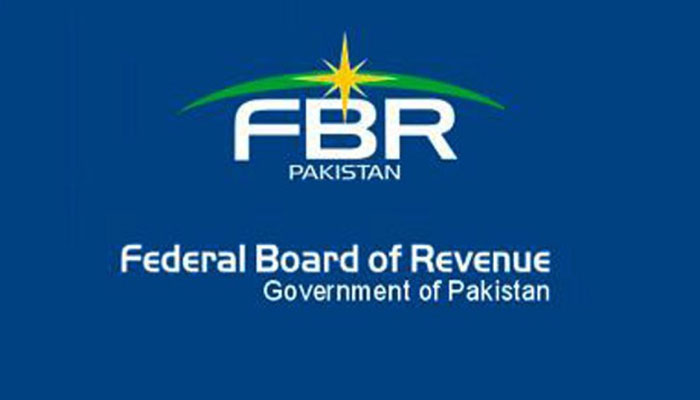FBR top guns reject proposed reforms
ISLAMABAD: The FBR’s top hierarchy has rejected the proposed reforms introduced by Dr Ishrat Hussain-led Institutional Reforms Body and proposed its own roadmap for undertaking minor but substantial changes having a far-reaching impact on revenue generation.
In background discussions with the FBR’s top guns on Tuesday, they rejected the proposed reforms introduced through the PM Office letter written in October last year where the FBR’s structure was proposed to be autonomous putting it outside the control of the government.
However, the tax machinery rejected these reforms in totality and raised one fundamental question that how much tax revenues would go up after implementing these reforms. If there is no clear cut response, then any such reforms would have no benefits to pursue vigorously, they argued.
They took stance that one monogram structure on papers by increasing or reducing the numbers of FBR’s Members could not bring reforms in the tax machinery, as it required a much deeper analysis and then fixation of problems and finally coming up with solutions. According to a presentation given to PM Imran Khan, the FBR high-ups claimed that if all corporate tax cases were brought from the Regional Taxpayer Offices (RTOs) to Large Taxpayer Units (LTUs), it could result into yielding additional tax revenues of Rs353 billion in one go.
“We have proposed minor but substantial changes for generating more tax revenues,” said the FBR official and added that the tax machinery would come up with a simplified tax return this year in order to expand narrowed tax base. Efforts will be made where there will be increase in deadline of filing of income tax returns this year,” added the official.
In order to protect privileges of the FBR employees while keeping the tax machinery within the fold of public sector, the Ministry of Law has been consulted to assure the privileges of FBR officials remained intact after granting autonomy such as on the pattern of State Bank of Pakistan.
On the issue of autonomy, the FBR officials had already rejected the proposal and told to retain the current status of tax collection machinery as a federal government department. The FBR officers had proposed that the re-structured tax authority after inclusion of provincial taxes might be appropriately named ‘Pakistan Revenue Board’ instead of Pakistan Revenue Authority.
The cabinet had approved the recommendations of the Institutional Reform Cell of Prime Minister’s Office, presented in its report on “Reorganising the federal government,” hereinafter, referred to as task force report. Though the cabinet did not approve abolishing the FBR and replacing it with the Pakistan Revenue Authority, the FBR was placed in the list of autonomous bodies in the report. This segment should be removed initially to place the FBR as an executive department.
There is a divergent opinion stated by the World Bank, as the World Bank project report “Pakistan raises revenue” also envisages the FBR as a semi-autonomous revenue authority. In this backdrop, the Para-F of the proposed plan of restructuring of FBR as envisaged in the minutes of the meeting held on October 3, 2019, outlined the establishment of the Pakistan Revenue Authority as an autonomous body. After detailed dialogues, the stakeholder input was sought from consultative committees.
-
 Winter Olympics 2026: When & Where To Watch The Iconic Ice Dance ?
Winter Olympics 2026: When & Where To Watch The Iconic Ice Dance ? -
 Melissa Joan Hart Reflects On Social Challenges As A Child Actor
Melissa Joan Hart Reflects On Social Challenges As A Child Actor -
 'Gossip Girl' Star Reveals Why She'll Never Return To Acting
'Gossip Girl' Star Reveals Why She'll Never Return To Acting -
 Chicago Child, 8, Dead After 'months Of Abuse, Starvation', Two Arrested
Chicago Child, 8, Dead After 'months Of Abuse, Starvation', Two Arrested -
 Travis Kelce's True Feelings About Taylor Swift's Pal Ryan Reynolds Revealed
Travis Kelce's True Feelings About Taylor Swift's Pal Ryan Reynolds Revealed -
 Michael Keaton Recalls Working With Catherine O'Hara In 'Beetlejuice'
Michael Keaton Recalls Working With Catherine O'Hara In 'Beetlejuice' -
 King Charles, Princess Anne, Prince Edward Still Shield Andrew From Police
King Charles, Princess Anne, Prince Edward Still Shield Andrew From Police -
 Anthropic Targets OpenAI Ads With New Claude Homepage Messaging
Anthropic Targets OpenAI Ads With New Claude Homepage Messaging -
 US Set To Block Chinese Software From Smart And Connected Cars
US Set To Block Chinese Software From Smart And Connected Cars -
 Carmen Electra Says THIS Taught Her Romance
Carmen Electra Says THIS Taught Her Romance -
 Leonardo DiCaprio's Co-star Reflects On His Viral Moment At Golden Globes
Leonardo DiCaprio's Co-star Reflects On His Viral Moment At Golden Globes -
 SpaceX Pivots From Mars Plans To Prioritize 2027 Moon Landing
SpaceX Pivots From Mars Plans To Prioritize 2027 Moon Landing -
 J. Cole Brings Back Old-school CD Sales For 'The Fall-Off' Release
J. Cole Brings Back Old-school CD Sales For 'The Fall-Off' Release -
 King Charles Still Cares About Meghan Markle
King Charles Still Cares About Meghan Markle -
 GTA 6 Built By Hand, Street By Street, Rockstar Confirms Ahead Of Launch
GTA 6 Built By Hand, Street By Street, Rockstar Confirms Ahead Of Launch -
 Funeral Home Owner Sentenced To 40 Years For Selling Corpses, Faking Ashes
Funeral Home Owner Sentenced To 40 Years For Selling Corpses, Faking Ashes




